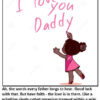 Won’t you please help? Millions of dollars are spent every year on life-threatening illnesses like cancer, heart disease, and restless leg syndrome. But precious little is being done about a chronic, as yet incurable condition that frankly, most people are not comfortable talking about. I’m talking about UHS.
Won’t you please help? Millions of dollars are spent every year on life-threatening illnesses like cancer, heart disease, and restless leg syndrome. But precious little is being done about a chronic, as yet incurable condition that frankly, most people are not comfortable talking about. I’m talking about UHS.
If you’re like many women, you probably think it stands for Ugly Husband Syndrome (which afflicts roughly half of all marriages after 15 years). If you live in Arizona, perhaps you think it stands for Unregistered Hispanic Syndrome. If you’re my teenage daughter, your guess might be Unbelievably Hideous Handbag Suckiness Syndrome (my daughter is not good with acronyms). But you’d be wrong. I’m talking about an actual medically diagnosed and thus far untreatable condition called Uncombable Hair Syndrome. Yes, there actually is such an affliction. It even has its own web site.
 What exactly is UHS? This silent killer (of any hopes for a social life) usually presents itself between the ages of 3 months and 12 years and typically results in thick, frizzy, light-colored hair which simply will not respond to combing.
What exactly is UHS? This silent killer (of any hopes for a social life) usually presents itself between the ages of 3 months and 12 years and typically results in thick, frizzy, light-colored hair which simply will not respond to combing.
So the next time you see a slovenly teenage boy who looks like a complete toad, with his over-sized pants hanging down around his knees, shoelaces untied, a tattoo of a snake slithering through the eye socket of a skull on his left arm, and unkempt hair flopping about all over the place, don’t be so quick judge. He just might have UHS. Underneath his sliced-up Judas Priest T-shirt and nipple ring, he might be crying silent tears (from the pain of the nipple ring). Give him an understanding nod, and while you’re at it, a hat.
What are the telltale signs of UHS? Well, for starters, look for someone whose hair won’t comb. How can you tell if you might have UHS? Step 1: Comb your hair. (Actually, there isn’t a step 2.) If it stays where you wanted it to go, you probably don’t have UHS. If it bounces back, then you may have UHS. Then again you could be an African American male or an African American female under the age of 12. Consult your physician to find out if you might be an African American.

Most people would prefer to brush this hairy issue under the rug. But unlike my hairline, this is one condition that is not receding. In the past decade, more than four dozen UHS cases have been uncovered. Sadly, little is being done to find a cure. Take a look at the following graph of medical research spending on UHS compared to other more “fashionable” medical conditions over the past five years:
Oh sure, you might cynically argue that I just made up this impressive-looking chart as a lazy, cheap way to fill space for this week’s post, to mask the fact that it was light on substance. And all I can say is – Hey, look!! Is that a Pterodactyl? …. Sorry. Just a large sparrow. Now, where was I? Oh yes. As I was saying, the sad truth is that UHS is a chronic, emotionally scarring medical condition that is extremely annoying and which nobody can avoid noticing, everywhere they go – sort of like pictures of Kim Kardashian at the grocery store checkout.
Infuriatingly, at present our government refuses to recognize UHS sufferers for disability benefits. Fortunately, unlike TPMS (Tea Party Member Syndrome), a virulent virus that severely impairs mental processing and which has rapidly spread throughout much of the rural southeastern USA, UHS is not believed to be contagious or politically based. However, a related condition, UEHS (Uncontrollable Ear Hair Syndrome) afflicts millions of American males over the age of 50 every year, as well as my elderly Aunt Eunice from Danville, Virginia.
Below are just a few well-known Americans who have attempted to live a normal life despite UHS. As you can see, they all have one thing in common: No decent person would ever be seen with any of them.

Her only bright spot came in August, 1975 at the Chippewa County Fair, where she submitted the prize-winning entry in the sheep competition. Her Blue Ribbon for her Oxford Down sheep, Daisy, however, was later withdrawn when judges discovered Daisy was actually none other than Gladys herself. Gladys died quietly by herself at the age of 87. On a positive note, her hair was made into a fetching cardigan sweater.

Until then, won’t you please help UHS victims find hope? Send your generous donation – and perhaps a bowler hat – today by calling 1-800-CANT-COMB.
Because a comb is a terrible thing to waste.
That’s the view from the bleachers. Perhaps I’m off base.
© Tim Jones, View from the Bleachers 2012













Sorry, Tim, but all my charity contributions are currently going to the UAPTAACI Foundation (shameless plug: I had a heart attack a year and a half ago, except that my cardiologist says the heart muscle wasn’t damaged, so even though they put two stents into my heart, it wasn’t really a heart attack, and what I had was “unstable angina progressing to an acute coronary insufficiency.” Rolls right off the tongue, huh?).
This is unfortunate, because I am a suffer of severe UHS (no, I didn’t go to Utica High School) which is alleviated only because I also suffer from DHS (Disappearing Hair Syndrome) and WHS (White Hair Syndrome), which trump UHS. Isn’t that interesting how Donald Trump managed to get his name into my comment as well as your post, even though I am loath to give him any free publicity?
Where do you get those photos? They are fabulous.